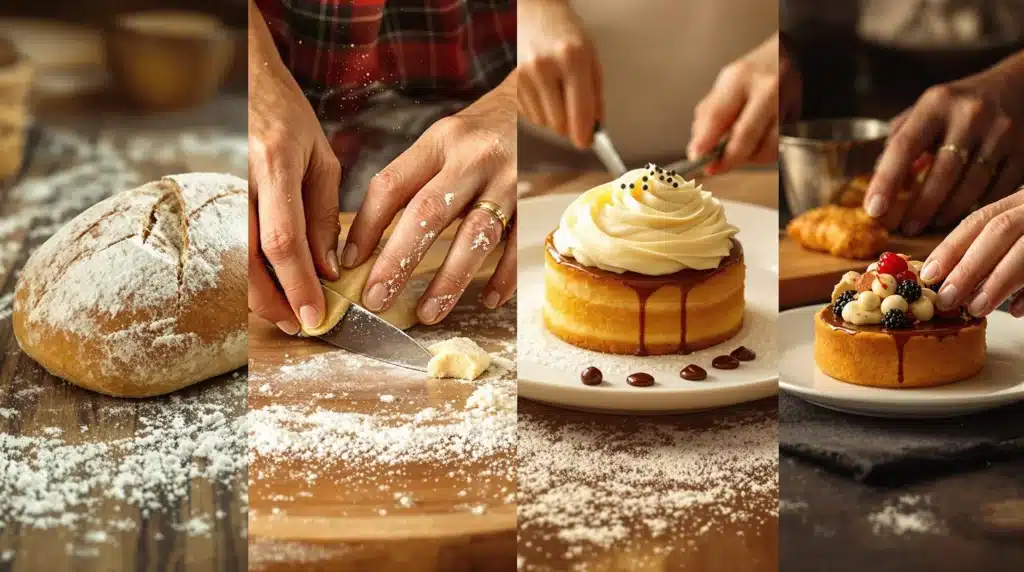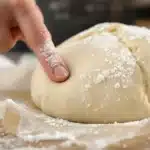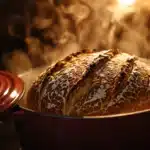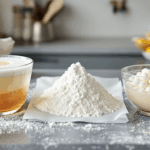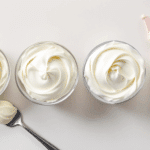So, you’ve decided to pursue a professional path in the world of baking and pastry. You’re excited by the prospect of working with dough, creams, chocolate, and sugar. But as you look deeper, you realize just how vast and varied this field truly is. It’s not just one job called “baker.” There are artisan bread specialists obsessed with fermentation, meticulous pastry cooks focused on flaky layers, creative cake artists wielding piping bags like paintbrushes, precise chocolatiers tempering couverture, and restaurant pastry chefs designing intricate plated desserts.
Faced with this diversity, aspiring bakers often wonder: where do I fit in? Should I aim to master the rustic art of bread? Am I drawn more to the delicate precision of French pastry? Does the artistry of cake decorating call my name? Or should I strive to be a jack-of-all-trades, comfortable across different disciplines? Finding your niche – that area of specialization where your passion, skills, and interests align – can be key to building a fulfilling and successful long-term career. Let’s explore the major pathways and help you consider where your own baking journey might lead.
The Wide World of Baking & Pastry: Major Niches
While foundational skills like accurate measuring, understanding ingredient functions, and maintaining cleanliness are universal, professional careers often lead down more specialized roads. Here are some of the major niches within the baking and pastry arts:
1. Artisan Bread Baker (Boulanger)
- The Focus: Deeply immersed in the world of yeast (commercial and wild/sourdough). Mastery centers on understanding fermentation science, working with pre-ferments (poolish, biga), handling doughs of varying hydrations (especially wetter doughs), expert shaping of diverse loaf forms (boules, bâtards, baguettes, country loaves), and skillful oven management (loading techniques, steam injection/trapping, judging doneness by color, feel, and temperature).
- The Environment: Typically found in dedicated artisan bakeries (ranging from small neighborhood shops to larger production facilities), or sometimes heading up the bread program in quality-focused restaurants or hotels. Often involves very early morning start times.
- Key Skills: Patience, strong understanding of fermentation, dough rheology (how dough behaves), excellent hand-shaping skills, consistency under repetition, oven proficiency.
2. Pastry Cook / Lamination & Viennoiserie Specialist (Pâtissier – Part 1)
- The Focus: Specializes in enriched, often laminated, yeast-leavened pastries (Viennoiserie) and related items. This includes mastering croissant and puff pastry lamination, brioche, Danish pastries, choux pastry (for éclairs, cream puffs), as well as accompanying components like pastry cream, simple glazes, and fruit fillings. Precision in temperature control and technique is paramount.
- The Environment: Works in pâtisseries, bakeries with strong Viennoiserie programs, hotel pastry kitchens, cafes. Like bread bakers, often requires early starts for breakfast pastry production.
- Key Skills: Meticulous attention to detail, mastery of lamination techniques, temperature control (especially for butter), handling enriched doughs, consistent shaping and proofing of delicate items.
3. Cake Decorator / Cake Artist
- The Focus: Primarily on the assembly, frosting, and decoration of cakes for various occasions – birthdays, weddings, celebrations. This niche blends baking skills with significant artistic talent. Techniques range from classic buttercream piping and smooth frosting finishes to intricate fondant work, gum paste flower creation, sculpted cakes, and hand-painting.
- The Environment: Often works in dedicated custom cake shops, supermarket bakeries with decorating departments, or potentially as a freelance artist from a licensed kitchen. While deadlines create pressure, daily hours might be slightly more conventional than production baking, though busy periods (wedding season, holidays) can be intense.
- Key Skills: Strong artistic eye, creativity, exceptional piping skills, steady hand, knowledge of cake structure and internal supports (for tiered cakes), mastery of various frosting mediums (buttercream styles, fondant, royal icing), patience for detailed work.
4. Restaurant Pastry Chef / Cook (Pâtissier – Part 2)
- The Focus: Creates desserts specifically designed to be served plated at the end of a meal in a restaurant setting. This involves balancing flavors, textures, and temperatures within a single composed dish. Often includes making components like mousses, ice creams, sorbets, intricate sauces, custards, fruit preparations, and delicate garnishes (tuiles, chocolate decorations). May also be responsible for the restaurant’s bread service or small bite-sized pastries (mignardise).
- The Environment: Works within a restaurant kitchen, often collaborating with the savory chefs. Shifts typically align with restaurant service times, meaning more afternoon, evening, and weekend work compared to morning bakery shifts. Pace can be very fast during service.
- Key Skills: High level of creativity, strong plating and presentation skills, ability to work quickly and organized under pressure during service, broad knowledge of diverse dessert components and techniques, flavor pairing expertise.
5. Chocolatier / Confectioner
- The Focus: Specializes in the precise art and science of working with chocolate and sugar. This includes mastering chocolate tempering, creating molded chocolates (bonbons), hand-dipped truffles, chocolate bars, enrobed items, and potentially chocolate sculptures. Confectionery work involves understanding sugar cookery stages for making caramels, nougats, marshmallows, hard candies, brittles, and gummies.
- The Environment: Found in dedicated high-end chocolate shops, confectioneries, luxury hotels, or sometimes within larger pastry kitchens that have a specific chocolate/confectionery station. Requires a very controlled (cool, low-humidity) environment.
- Key Skills: Extreme precision and patience, mastery of chocolate tempering, understanding of sugar chemistry and crystallization, meticulous attention to detail, often requires specialized equipment (tempering machines, molds).
6. Production Baker
- The Focus: Works in high-volume settings, producing large quantities of specific items like bread loaves, rolls, muffins, cookies, or pastries according to standardized recipes and procedures. Emphasis is placed on consistency, efficiency, and operating large-scale commercial equipment (huge mixers, rack ovens, depositors, sheeters).
- The Environment: Large commercial bakeries supplying supermarkets or food service, in-store bakeries within supermarkets, institutional kitchens (hospitals, universities). Often involves shift work, which could be day, evening, or overnight.
- Key Skills: Ability to operate and maintain commercial baking equipment, strong adherence to formulas and procedures, speed and efficiency in repetitive tasks, ability to maintain consistency across large batches, understanding of production flow.
Factors to Consider When Finding Your Fit
Choosing a niche isn’t always straightforward. Here are some factors to help guide your thinking:
- What Genuinely Excites You? Where does your baking passion truly lie? Are you fascinated by the living nature of sourdough? Do you love the detailed artistry of piping buttercream flowers? Does the precision of chocolate work appeal? Does the rhythm of bread shaping feel satisfying? Following your genuine interest is crucial for long-term job satisfaction.
- Your Natural Skills & Aptitude: Be honest about your strengths. Do you have a naturally artistic eye? Are you meticulous and patient, suited for detailed work? Do you enjoy the physicality and rhythm of bread production? Are you more scientifically inclined, fascinated by fermentation or sugar chemistry? Aligning your niche with your inherent talents can lead to greater success and enjoyment.
- Preferred Work Environment & Pace: Consider the different atmospheres. Do you thrive under the pressure of restaurant service? Prefer the focused, often early-morning routine of a bakery? Enjoy the creative solitude of a cake studio? Or perhaps the structured efficiency of a production facility?
- Lifestyle Compatibility: Think about the typical hours. Are you a natural early bird suited for bread baking shifts? Or does the afternoon/evening schedule of restaurant pastry align better with your life? Consider the physical demands associated with each area – bread baking often involves more heavy lifting, while decorating might require long periods of focused, fine motor work.
- Local Job Market & Opportunities: Research what kinds of baking and pastry jobs are available in the area where you want to live and work. Is there a vibrant artisan bread scene? Many high-end restaurants needing pastry talent? A demand for custom cake decorators? Understanding the local market can influence your choices.
- Earning Potential & Advancement: While passion should be a driver, it’s practical to consider typical salary ranges and career progression opportunities within different niches. These can vary based on specialization, location, and the level of the establishment.
Specialist vs. Generalist: Is it Okay to Love it All?
Don’t feel pressured to choose a narrow specialty immediately, or even ever. Both paths have value:
- The Generalist: Especially in smaller bakeries, cafes, or when starting out, having a broad skillset across bread, pastry, and cakes can make you a highly valuable and versatile employee. You can contribute wherever needed.
- The Specialist: Deeply mastering one particular area (like sourdough, lamination, or chocolate) allows you to achieve a higher level of expertise and command recognition within that field. This can lead to opportunities in specialized shops, teaching roles, consulting, or becoming a leader in that specific craft.
- Finding a Balance: Many successful professionals find a middle ground – developing a primary area of expertise while maintaining strong foundational skills in other areas. You might be known as an exceptional bread baker who can also produce solid basic pastries and desserts.
- It’s Okay to Evolve: Your interests might change over time. You might start in bread and later discover a passion for chocolate, or move from restaurant pastry to opening your own cake business. Your career path doesn’t have to be linear.
How to Explore Potential Niches
How can you figure out where you might fit best?
- Internships & Stages: Actively seek out short work experiences (“stages”) or longer internships in different types of environments – try a bread bakery, then a restaurant pastry section, then maybe a cake shop. This firsthand exposure is invaluable.
- Targeted Workshops & Classes: If a specific area intrigues you, take a focused hands-on class (e.g., an intensive sourdough workshop, a cake decorating boot camp, a chocolate tempering class).
- Talk to People: Conduct informational interviews (politely asking for advice and insight, not directly for a job) with bakers and pastry chefs working in various niches you’re curious about. Ask about their daily routines, the pros and cons, and the skills needed.
- Experiment Widely at Home: Continue baking across different categories. Which processes do you enjoy most? Which results give you the most satisfaction? Your home baking can reveal your natural inclinations.
Conclusion: Charting Your Culinary Course
The professional world of baking and pastry offers a rich tapestry of specialized paths, each with its own unique challenges, rewards, and required skill sets. From the patient fermentation of the boulanger to the artistic flair of the cake decorator, the scientific precision of the chocolatier, or the high-pressure creativity of the restaurant pâtissier, there’s a potential niche for almost every personality and passion.
Finding your place is a journey of self-discovery. Consider what genuinely excites you, where your natural talents lie, what kind of work environment you thrive in, and what lifestyle you envision. Explore different avenues through practice, short work experiences, and talking to professionals. Whether you ultimately choose to become a deep specialist or a versatile generalist, understanding the diverse landscape of baking and pastry careers will help you navigate your path with intention and find the sweet spot where your passion meets your profession.

